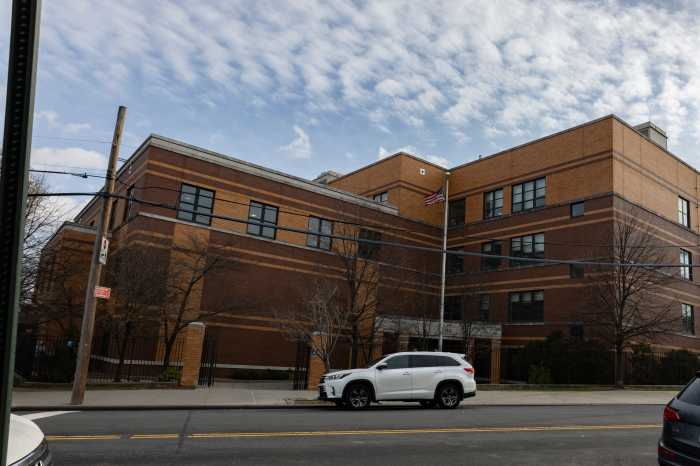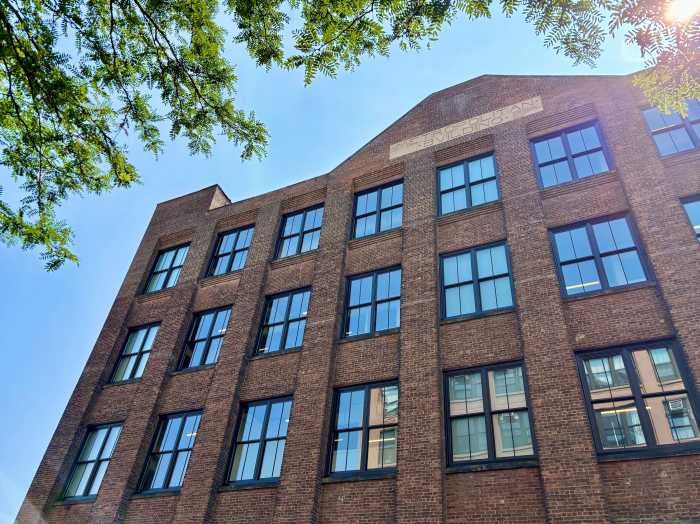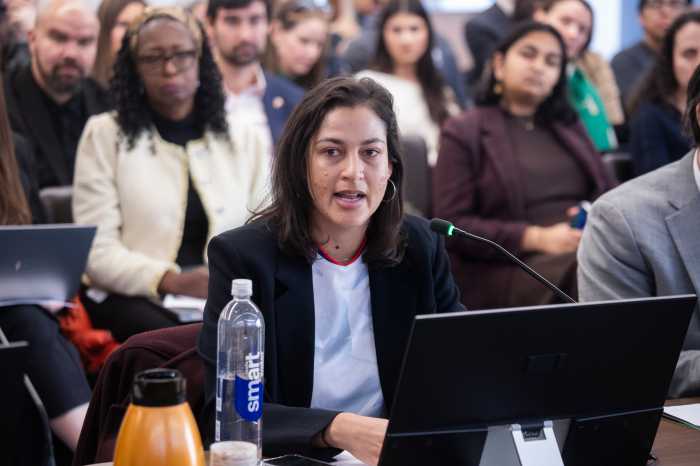With a long and storied history of providing various services to the entire Queens community, it’s hard to put a finger on one characterization of the Samuel Field Y. For some, it’s a place where children can go while their parents are at work. For others, it’s a place where those trying to advance their careers can get proper training and assistance. One entity that has remained constant for a half-century is the Samuel Field Y’s commitment to the community. During the current economic downturn, their services are needed now more than ever.
“Although the stock market seems to be doing better and economic indicators seem to be improved, there are still many people who are lost in place in our society and haven’t had access back in,” said Steven Goodman, executive vice president and CEO of the Samuel Field Y and Central Queens Y. “I think those folks have not yet rebounded in a way that the macro-economic indicators might imply.”
As a not-for-profit, multi-service communal organization, the Samuel Field Y and their 34 off-site locations have led the way in getting Queens residents back on their feet. The Connect-to-Care program has provided services that include career education, financial counseling, mental health counseling, career training and job fairs that have been attended by hundreds of willing and able would-be workers. According to Goodman, Connect-to-Care best defines the Samuel Field Y.
“We have received a lot of positive feedback and success stories from many of our clients . . . they can once again feel the dignity and the security of being part of the community economically,” said Goodman, who added that 75 different communal organizations help make the UJA-Federation of New York’s Connect-to-Care program possible.
In July 2009, the Samuel Field Y – located at 58-20 Little Neck Parkway in Little Neck – began its affiliation with the Central Queens Y in Forest Hills; a once independent community center that was heavily affected by the economic climate. Goodman says it was an opportunity to bolster the many strengths of the Central Queens Y as well as bring new strengths to the table.
“Strategic vision has to evolve when conditions change. We are an economy of scale. We are able to provide staff from one agency to another and to be more responsive to the community by having a new location,” said Goodman. “It’s exciting. I get to go to sleep at night and think ‘I’m an executive of an agency that serves the entire borough of Queens.’ Our board takes that challenge very seriously. We have been working broadly and communally to make sure that that vision is realized over time by making some strategic plans and implementations.”
So far, the Central Queens Y has flourished since beginning its affiliation through the development of new programs for people with disabilities, people suffering from geriatric mental health issues and a student drop-out prevention program which focuses on helping teens who are having difficulty getting through the ninth grade, the key grade in terms of drop-out rates. Altogether, the Samuel Field Y serves approximately 2,500 students between ages 6-18 each day including nursery school, child day care, universal pre-K and after-school activities like sports teams and art classes.
For Goodman – who started his career at the Samuel Field Y 44 years ago in their after-school program – he credits the agency with giving him a sense of security when he moved from Brooklyn to Queens in his adolescence. He continued to work there during summers while also working for the New York City Department of Education in a variety of capacities. He was eventually hired as assistant executive director in 1990 and became the CEO in 1994. Since taking over, the Samuel Field Y has grown from a $3 million agency to an approximate $23 million today. They have 1,000 full-time employees borough wide and serve over 40,000 people a year in Queens.
“I’m proud of what we have achieved,” said Goodman. “When I became the CEO, there were five community centers. Now, it’s just us. We are proud that we have engaged in good businesses practices and good strategic planning and have been responsive to the needs of the community.”
The New Year has brought new challenges for the Samuel Field Y. Goodman will be concentrating efforts on engaging the growing western Queens population who have not yet fully taken advantage of the agencies services. His other challenge will be to create partnerships with local businesses in an effort to promote positive growth and achievement. Collaborations between the community centers and local businesses are what Goodman calls the “future model” for the Samuel Field Y. In March, they are planning to host a business forum to discuss how to more effectively serve communities.
“I think business will flourish when they are seen as places that are interested in the common good,” said Goodman.
When philanthropist Samuel Field provided the funding to build the Samuel and Helen Field Building in Little Neck in 1964, he believed in the importance of actively contributing to the Jewish community. Today, the Samuel Field Y continues to serve a role in Jewish life while accepting all races, creeds and ages through its doors. From a business standpoint, the agency is thriving, but personally, it’s all about building a generational legacy.
“We have kids that grew up at the Y who are now in their 30s who have children at our nursery school or their parents in our senior center. It makes us feel special that we are accomplishing a communal mission,” said Goodman.
For more information about membership, programs and site locations, visit www.sfy.org or call 718-225-6750.


































